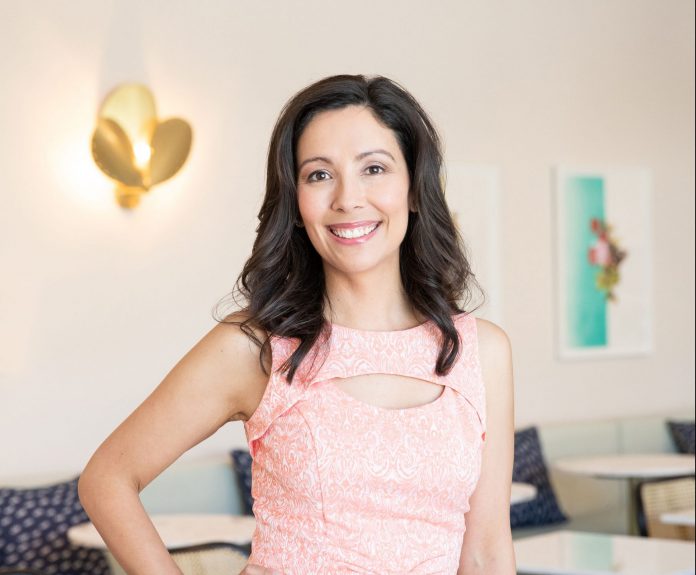Elizabeth Koraca is a career strategist and media contributor in Los Angeles and New York City with a background in broadcast journalism. She helps business professionals improve their image, messaging, and personal branding.
Previously, Elizabeth was a TV News Anchor for Reuters, where she ran the New York US/China TV business News Desk, and she’s now a TV Contributor and a regular on CNN, Fox News and Cheddar TV. Her advice has been featured in print publications New York Magazine, NASDAQ, Entrepreneur and more.
Here, she tells us her career story and her tips for success.
Why did you want to get into broadcast journalism?
I wanted to be a journalist because I wanted to help people and tell the stories of the voiceless and also inform viewers of the latest news so they can make better-informed decisions. Before I was a journalist, I worked in politics for the Canadian government as a policy advisor to a cabinet minister.
Can you tell us about your journey into becoming a TV anchor?
In 2006, I left my homeland of Canada to head to New York City to fulfil my dream of becoming an on-air reporter. However, my enthusiasm was met with rejection and criticism. It was a powerful blow, but one that fueled my drive and persistence.
Read more: Why I co-founded a website to help aspiring journalists
I soon got my big on-air break with a job in the Bronx, and not long after that, I was offered the position of financial TV journalist at Reuters working at the global network level. It was the beginning of an amazing career. I am grateful for the opportunity it provided me.
My career as a journalist trained me to be the coach and consultant I am today being able to help my clients with strategy, confidence and getting their dream job.
What obstacles did you overcome along the way?
The biggest obstacle I overcame was the amount of rejection I received when I was trying to be an on-air reporter. Another obstacle was my own self-doubt and the way I overcame self-doubt was practising and actually reporting on-air.

What were your highlights of that job and why should other people consider it?
Some of the greatest highlights of that job were gaining certainty and confidence. Being on-camera thrust me into the spotlight on live television and that helped me be more assertive and comfortable with public speaking.
I also loved interviewing hundreds if not thousands of dynamic and fascinating business leaders which taught me so much. I am able to use that knowledge in my coaching practice.
Why did you decide to start up your own consultancy? What drives you to do this work?
I wanted to leverage my experience and skills as a TV anchor to help train and coach people to be empowered to take charge of their careers, grow their salary, and find their voice as a leader. It is with passion that I teach people the tools I wish I had years ago including, speaking confidently, feeling in charge and in control, leveraging your skills, and having a plan and strategy on how you are going to achieve your dream life. I love what I do! Coaching people fulfils me and it is their progress that drives me to do this work.
Tell us a bit about what your average working day is like?
Every day in my business is different. For example, on Monday I could be teaching a presentation seminar to executives at a private equity firm and Tuesday I could be coaching my women’s group on how to deal with burnout. On Wednesday I could have one on one clients dealing with how to get promoted and ask for a raise. Thursday could be working with my clients who are kids and working on their on-camera confidence. On Friday, I could be on CNN as a guest sharing my expertise on how to work from home. I love my job because it is different each day.
What advice would you give to someone who wanted to get to the media but they don’t feel they have the confidence?
The more you practice, the better you will get and the more confidence you will have. The biggest mistake I made when I started off in television was thinking that everything I did including my performance on-air had to be perfect. If you prepare, your best is enough. It’s also a good idea to have mentors who can guide you along the way and give you the feedback you need to improve.
If you could go back and tell your teenage self one thing, what would it be?
I would tell my teenage self to stop worrying about what everyone thinks and just do what you want to do. As the saying goes, comparison is the thief of joy so don’t compare yourself to others. You can always strive to improve your personal best and that is the only comparison you should be doing. Listen to your parents because they have great advice. Think about all the things you love to do and make a list because that will help you pick your major when you go to college.
